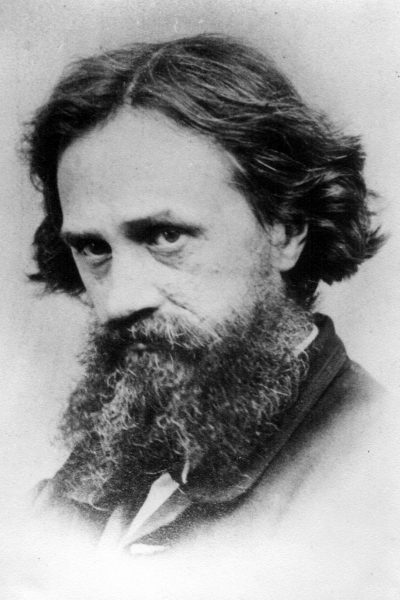
Arthur Hayball. Source: Picture Sheffield.
Arthur Hayball was born on Tudor Street, Little Sheffield, the son of Thomas Hayball, a joiner. As a child Arthur spent much of his time in his father’s workshop. Following an accident in which he broke his leg, he was given a piece of spare wood to carve to keep him amused during his convalescence. From then on much of his time was spent learning to carve wood and when he left school he joined his father as an apprentice.
For the Great Exhibition of 1851 Hayball produced a fine cabinet of English walnut for which he received first prize and a medal.
The catalogue for the Exhibition noted:
This cabinet is the work of A Hayball a young wood carver of Sheffield. It is made of English walnut-wood; the design is pure Italian, abundantly rich in ornament and free from the monstrosities that too frequently deface similar productions. There is indeed scarcely a single part open to reasonable objection.
Arthur Hayball died aged 65 in June 1887 and was buried in an oak coffin made by his workers.
We regret to have to record the death of Mr Arthur Hayball, the wood carver, who for 43 years has been directly connected with the Sheffield School of Art. As an artist in his particular work he was perhaps unsurpassed in the kingdom, and although of a quiet and retiring disposition he has left many acquaintances, while all who knew him intimately could at all times look upon him as a friend ever willing and anxious to help others forward. He was thoroughly an artist in feeling, and in his death Sheffield had lost one of the best art workmen it every had.
The Sheffield Daily Telegraph, 30 June 1887
Arthur Hayball was buried in the Anglican area of the Cemetery in plot M3 139.
You can read more about the artists in the Cemetery in the Sheffield General Cemetery Trust’s publication Canvas of Memories and follow the self-guided trail Artists of the Sheffield General Cemetery.



